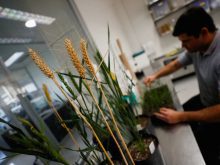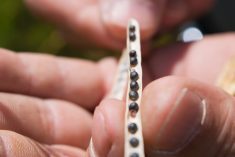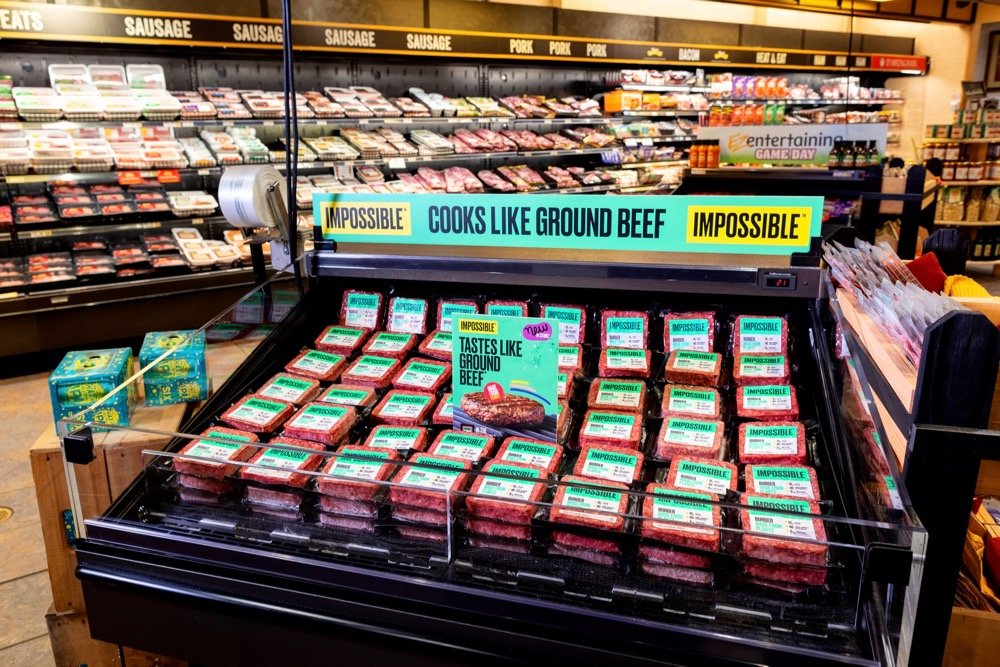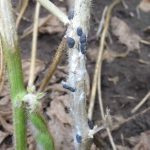UPDATED, June 14, 2018, 6:55 p.m. — Genetically modified (GM) wheat — which hasn’t been approved for commercial production in Canada — has been discovered in southern Alberta, the Canadian Food Inspection Agency has confirmed.
The wheat of unknown origin contains a genetic modification making it resistant to a common herbicide, CFIA told reporters Thursday.
A Monsanto Canada official confirmed the modification, which makes plants able to tolerate the non-selective herbicide glyphosate, comes from the company.
All the GM wheat plants discovered in a field ditch have been destroyed and CFIA will monitor the site for three years to ensure the wheat doesn’t show up again.
Read Also

Wheat breeding system no longer works, Canadian Wheat Research Coalition report says
A Canadian Wheat Research Coalition report, published Feb. 26, says the status quo is not an option for Canada’s wheat breeding system. It must be transformed, by farmers.
The CFIA made the announcement during a technical briefing today to discuss what it says is “an isolated finding of a plant product of biotechnology not permitted to be grown in Canada.” CFIA also noted there’s not food safety issue as the same trait has been approved for use in corn, soybeans and canola.
No GM wheat has been found in Canada’s commercial wheat system. That means the discovery should’t disrupt Canadian wheat exports.
That was the American experience. Monsanto’s Roundup Ready wheat, which also tolerates glyphosate have been found growing in Washington state, Oregon and Montana and that didn’t undermine U.S, wheat exports.
The U.S. Food and Drug Administration has determined Roundup Ready wheat is safe for food and feed.
Although never commercialized in Canada or the U.S., Roundup Ready wheat was grown in open test plots in both countries. It’s speculated protocols to confine the experimental wheat were not 100 per cent effective.
However, CFIA said the wheat found in Alberta is not Monsanto’s Roundup Ready wheat.
Monsanto worked with Agriculture and Agri-Food Canada to develop Roundup Ready spring wheats suitable for production in Western Canada in the late 1990s and early 2000s. But as the GM wheats got closer to commercialization, opposition from farmers and the Canadian Wheat Board (CWB) increased. They feared consumer rejection of GM wheat would result in reduced wheat exports.
In 2004 Monsanto shelved plans to commercialize GM wheat in Canada and around the world.
“This decision was based on discussions with all of the relevant regulatory authorities, and we have mutually agreed that withdrawing the submissions is the appropriate course of action at this time,” Monsanto Canada said in a statement June 18, 2004.
“These actions are in keeping with our recent announcement to defer commercial development of Roundup Ready wheat until other biotechnology traits in wheat are introduced.”
Unapproved GM crops have disrupted markets in the past. StarLink corn is an example. Canada blocked entry of the crop in the fall of 2001.
CDC Triffid flax is another example. The GM flax was approved for commercial production in Canada in 2001, but deregistered to protect Canadian flax exports because importers had not approved it.
Canadian flax exports to EU, until then Canada’s biggest market, almost ground to halt in 2009 after trace amounts of Triffid were found in Canadian flax shipments to Germany.
After five years of purging Canadian flax of CDC Triffid, exports started to increase, but Canada hasn’t fully recaptured the more lucrative European food flax market.
CFIA has posted their statement and findings online:
- Detection of genetically modified herbicide-tolerant wheat in Alberta
- Statement by the Canadian Food Inspection Agency on the detection of genetically modified herbicide tolerant wheat in Alberta
*[UPDATE] An earlier version of this article incorrectly mentioned Roundup Ready wheat was found in Alberta. What was found was wheat of an unknown origin that was genetically modified to tolerate glyphosate. Roundup is the trade name for Monsanto’s glyphosate.















